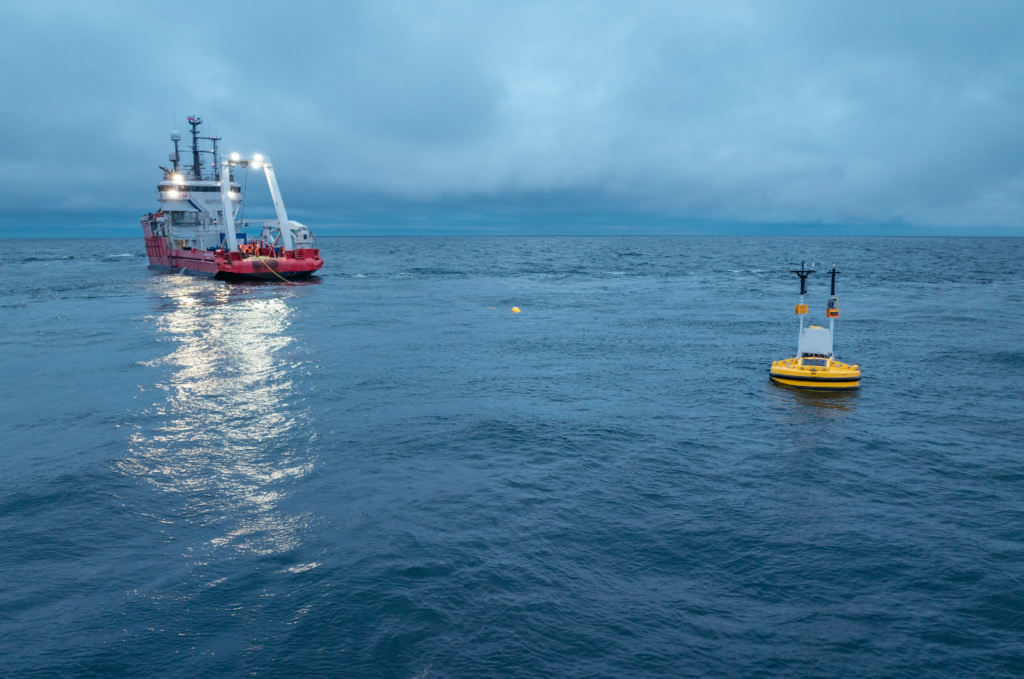
The measuring station, which was put on a special buoy, will provide environmental monitoring data in real-time to help make decisions on developing the project, said Ignitis Renewables, the company that is developing the offshore wind farm together with its partner Ocean Winds.
“To have accurate data on prevailing wind speeds and other hydro-meteorological parameters such as wave height, direction and speed of currents, air and water temperature as well as bat activity in the maritime area of the offshore wind farm, our partner Fugro, towed one of their wind LiDAR buoy’s using specialised equipment to the maritime area of the future offshore wind farm and secured it,” said Dainius Stepanonis, Project Manager at Ignitis Renewables who is responsible for marine research.
According to Stepanonis, all the work in the maritime area will be completed within a few days, “while the installed equipment will be left to collect and continuously transfer data remotely for at least a year, with the option, if necessary, to continue studies for a longer period”.
The wind speed is measured at different altitudes from 20 to 280 metres, while water parameters are measured at depths of up to four metres. These data are crucial for selecting future wind turbine models, estimating the necessary investments, designing the turbine layout and their period of operation, and assessing other important aspects, said Ignitis Renewables.
Specialists conducting the studies are particularly interested in data from the winter period. According to the developer, during winter, the winds are the strongest, and meteorological conditions are at their worst.
The Lithuanian Government held the auction, the country’s first for an offshore wind project, last year. In July 2023, the government provisionally selected the joint venture between Ocean Winds and Ignitis Renewables. Three months later, it officially confirmed the joint venture as the developer of Lithuania’s first offshore wind farm.
The site where the offshore wind farm will be built is located approximately 30–36 kilometres off Lithuania’s Baltic Sea coast and covers an area of approximately 120 square kilometres.
The number of wind turbines to be installed at the site will be up to 55, with a maximum height of around 350 metres. The depth of the maritime area ranges from 28 to 48 metres, and the average annual wind speed there is around 9-10 m/s.
All of these parameters will depend on the findings of the studies, the environmental impact assessment, adopted technologies, and other conditions, said Ignitis Renewables.
Scheduled to begin operations by 2030, the offshore wind farm will have an installed capacity of 700 MW and is expected to generate up to 3 TWh of electricity annually, which would meet up to a quarter of Lithuania’s current electricity demand.